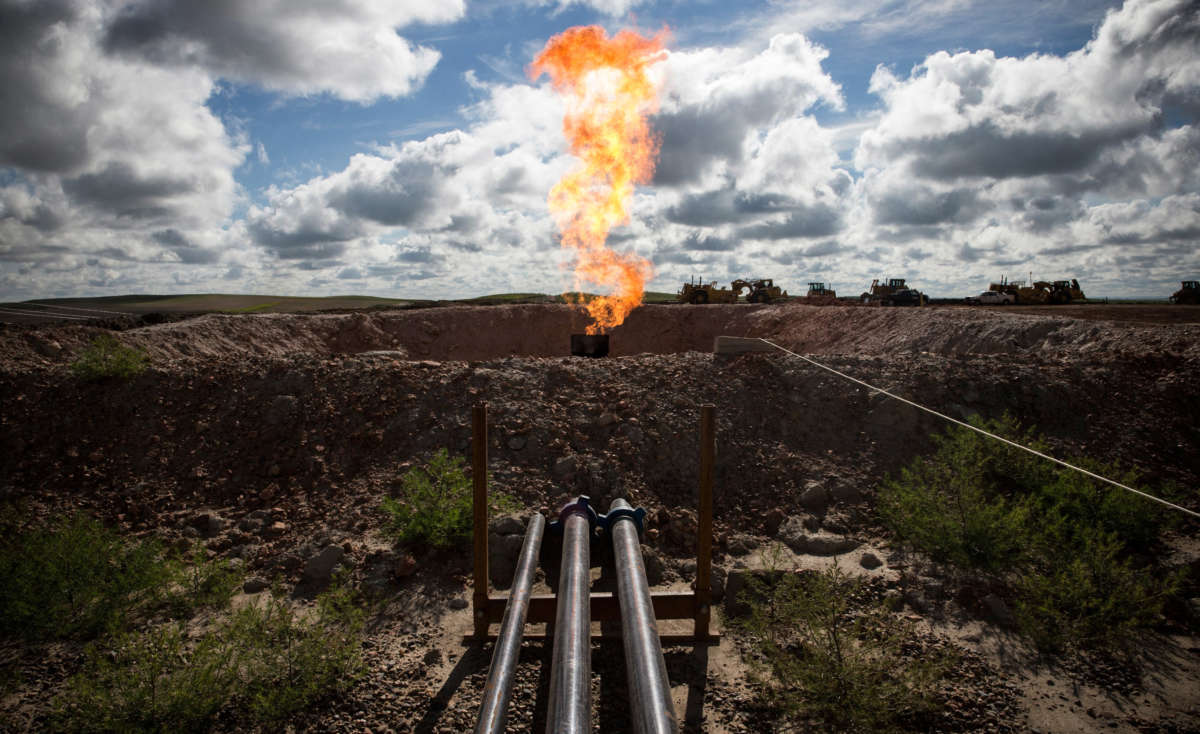The International Energy Agency (IEA) released a report on Monday saying that, if the world is to attain net zero emissions by 2050 and limit global warming to below 1.5 degrees Celsius, global powers must stop pursuing new fossil fuel extraction projects — soon.
The path to net zero is narrow but achievable with bold and immediate action, the IEA report said. Though climate-focused organizations have made similar predictions, it’s especially important coming from the IEA, which exercises wide control over the world’s governments and corporations.
The IEA laid out milestones in a roadmap to achieving net zero, and said in a press release on the report: “These include, from today, no investment in new fossil fuel supply projects, and no further final investment decisions for new unabated coal plants.”
“Net zero means huge declines in the use of coal, oil and gas. This requires steps such as halting sales of new internal combustion engine passenger cars by 2035, and phasing out all unabated coal and oil power plants by 2040,” the IEA wrote in the report.
The IEA has previously been in support of fossil fuel extraction efforts, and has featured scenarios in their energy reports that would put the world on track to a catastrophic 3 degrees Celsius of warming, according to Oil Change International, a group that advocates against the fossil fuel industry. Previous scenarios championed by the IEA had put the world on track to net zero by 2070, which would be far too late to prevent the worst effects of the climate crisis, according to the findings of climate scientists.
Governments and oil and gas corporations would often justify decisions to expand oil and gas explorations by employing the scenarios put forth by the IEA. But now, Oil Change points out, fossil fuel boosters have nothing to hide behind.
“Big Oil and Gas companies and the governments of fossil fuel-producing countries have lost one of their key covers for claiming that developing new oil and gas reserves is fully consistent with their commitments to ‘net zero’ or the Paris Agreement,” Oil Change pointed out in a blog post.
Moreover, the report makes it clear that the IEA does not believe that the Paris Agreement, even if countries fully realized their commitments, would be enough to fully abate the climate crisis.
The IEA also emphasizes the importance of clean energy, which will play a huge role in a low-carbon future.
“The path to net-zero emissions is narrow,” the IEA report said. “Staying on it requires the massive deployment of all available clean energy technologies — such as renewables, EVs and energy efficient building retrofits — between now and 2030. For solar power, it is equivalent to installing the world’s current largest solar park roughly every day.”
Climate reporters and advocates were surprised by the report, but hailed it as a positive step that could help put necessary pressure on lawmakers and the business community.
“Today’s bombshell report from the International Energy Agency is easy to translate: anyone who continues to engage or invest in fossil fuel development is wrecking the climate,” tweeted climate writer and 350.org founder Bill McKibben. “Or, more simply: Keep It In the Ground.”
To some climate advocates, the IEA report signals a hopeful shift in climate politics from even more conservative sources.
“In the past, the International Energy Agency has been hesitant to call time on the fossil fuel industry — not anymore,” said Anna Vickerstaff, U.K. team leader for 350.org, in a statement. “When this conservative institution is demanding an end to fossil fuels it really is time for governments to ditch the net-zero rhetoric and take immediate action to cut their support for polluting corporations.”
The IEA report isn’t perfect, and some in the climate community have criticized some of the measures that the IEA has laid out in its roadmap. The plan projects a heavy growth of bioenergies to help reach net zero goals, for instance, which some climate researchers say would be unfeasible.
Still, in combination with the ideas from the many other climate and energy organizations that have been charting similar paths to emission reductions, the plan’s goals may yet be achievable.
Join us in defending the truth before it’s too late
The future of independent journalism is uncertain, and the consequences of losing it are too grave to ignore. To ensure Truthout remains safe, strong, and free, we need to raise $50,000 in the next 9 days. Every dollar raised goes directly toward the costs of producing news you can trust.
Please give what you can — because by supporting us with a tax-deductible donation, you’re not just preserving a source of news, you’re helping to safeguard what’s left of our democracy.
